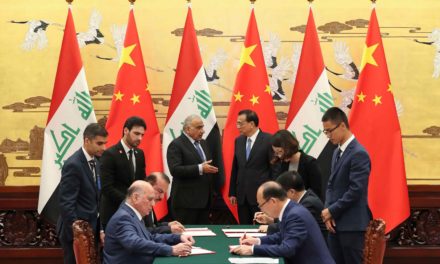A law was passed in March 2018, which revives an older one issued in 1967 to establish a national oil company in Iraq. In a country which is an important player in international oil markets, and in such a sensitive local, regional, and global context, this is considered a very important development.
The extent a state has control over its energy resources reflects the level of political and economic sovereignty. The countries that are capable of controlling their energy sector and administer it well, will be able to control their economies in a more effective way. In a country such as Iraq where oil is the core of all its economy, the approach of managing its oil resources can be the crucial aspect that determines the future of the country and its prosperity.
Although this issue has a huge impact on the stability and growth of Iraq’s economy, the impact is not only local but transcends to the global energy market. National oil companies are amongst the strongest players in the international economy, given that these companies control 80% of global oil reserves and 73% of global oil production. Therefore a new player in this arena can certainly have a disruptive effect.
Let us look closer at the benefits of establishing a national oil company.
Administering and developing Iraq’ oil sector depends strongly on how the relationships with international oil companies are managed, whether these are of a technical, fiscal, legal, or technological nature. International oil companies are regarded amongst the most crucial actors in global economy, and hence managing the relationship with them requires flexibility and advanced expertise usually not present in state apparatuses. This is why states establish specialized oil companies connected to them which have a high level of legal, economic, and administrative independence. States use these companies because of their capacity to accumulate expertise and exhibit high levels of competency in administration and oversight.
Usually, these companies develop the oil sector through attracting, negotiating, and contracting investors, whether for upstream operations, which comprise exploration, developing, extracting and exploitation of oil and gas resources, or for downstream operations, which include building and managing oil and gas transportation networks, oil refineries, oil and gas storage facilities, or gas treatment facilities.
The most important part of oversight operations in the oil and gas industry are technical inspection processes of international oil companies. Technical inspection requires flexibility, speed, accuracy, and advanced knowledge that the government sector normally doesn’t have. This pushed Iraq in the past to hire international companies specialized in technical inspections. This could be done however by the national oil company which will help Iraq avoid a lot of costs it is now incurring.
Establishing an Iraqi national oil company will improve efficiency, because one of its main roles is financial control, which focuses on reviewing books and accounts of the projects to determine the cash flow of the companies or the projects accurately, and to extract income tax that Iraq is entitled to according to the Iraqi oil taxes law.
The oversight over international oil companies to transfer technology is also considered one of the crucial issues in regards to developing the Iraqi oil and gas sector. Generally, oil companies are hesitant to share their know-how and hence deliberately avoid taking this process seriously despite contractual obligations.
Furthermore, establishing an NOC to manage the Iraqi oil sector in the form of a limited joint-stock company with a legal personality separate from the state has multiple advantages for both the Iraqi state and oil investors. When it comes to the state, although it owns the shares of this company, the fact that it has a separate legal personality ensures that the legal affairs and properties of the state are separate to the company. In other words, the establishment of the Iraqi NOC in the form of a joint-stock company leads to the limitation of company responsibility within its capital, which means that in case of any legal disputes, the national oil company can only be held liable to what it officially owns. If this separation does not exist, it is possible for IOCs to pursue international arbitration that could lead to freezing of Iraqi assets.
The role of NOCs is not represented only by managing the affairs of the international oil companies, but also the mere existence of it represents an important legal element in order to create an investment environment that helps develop the Iraqi energy sector. This is because international oil companies normally avoid signing contracts with directly with governments due to the associated risks. The most concerning risks to the IOCs are represented by the application of Administrative Contract Rules that gives the state many privileges, such as adjustment and termination of the contracts.
To conclude, the revival of Iraqi NOC idea through the law passed in March 2018 is considered an essential step to enforcing oversight on the technical, financial and technology transfer fields. On the other hand, it ensures protection for Iraq’s national assets in case of legal disputes.
It also reflects from a political standpoint Iraq’s serious intention to develop this sector strategically and regulate its impact on the economy, in addition to giving Iraq a better position in determining international oil prices, and improving its standing in OPEC where all members already have national oil companies.

Youssef Ali
Youssef Ali is a Ph.D researcher in international law. He specializes in international oil and gas law and is interested in Iraqi political and legal affairs.










